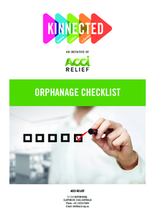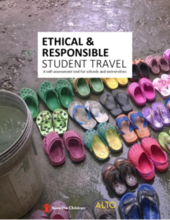Displaying 4231 - 4240 of 4272
This series of country briefs aim to provide an analysis of children’s living and care arrangements according to the latest available data from Demographic and Health Surveys (DHS) or Multiple Indicators Cluster Surveys (MICS) at the time of publication.
Este video explica estrés tóxico y cosas que podemos hacer para defendernos a nosotros y a nuestros hijos de los efectos de incluso el estrés más intenso.
From brain architecture to toxic stress to serve and return, The Brain Architects, a new podcast from the Center on the Developing Child at Harvard University, focuses on the specific, practical questions that often arise for parents and caregivers during the critically important period of early childhood.
The Center on the Developing Child created this Guide to Toxic Stress to clear up the confusion and help you learn the facts about toxic stress step by step.
This checklist was developed by Kinnected, an initiative of ACCI Relief in Australia, to guide donors and supporters of orphanages in understanding how the orphanages they support are being run and how well they are aligning with best practices.
This Self-Assessment Tool has been developed for use by educational institutions to assist with due diligence in the planning and implementation of overseas student travel.
This course examines how children’s social environments at different levels, such as the family, community and societal levels, influence children’s adversity, development and resilience.
This infographic from the Center on the Developing Child at Harvard University shares some suggestions for building resilience and strength in families and communities to mitigate the impacts of toxic stress.
Virtual Philanthropy is a guided tour for nonprofits looking to understand the steps they should take in order to get in front of, and eventually get funding from, foundations and donors.
This infographic explores how epigenetics relates to child development and how early experiences can have lifelong impacts.


